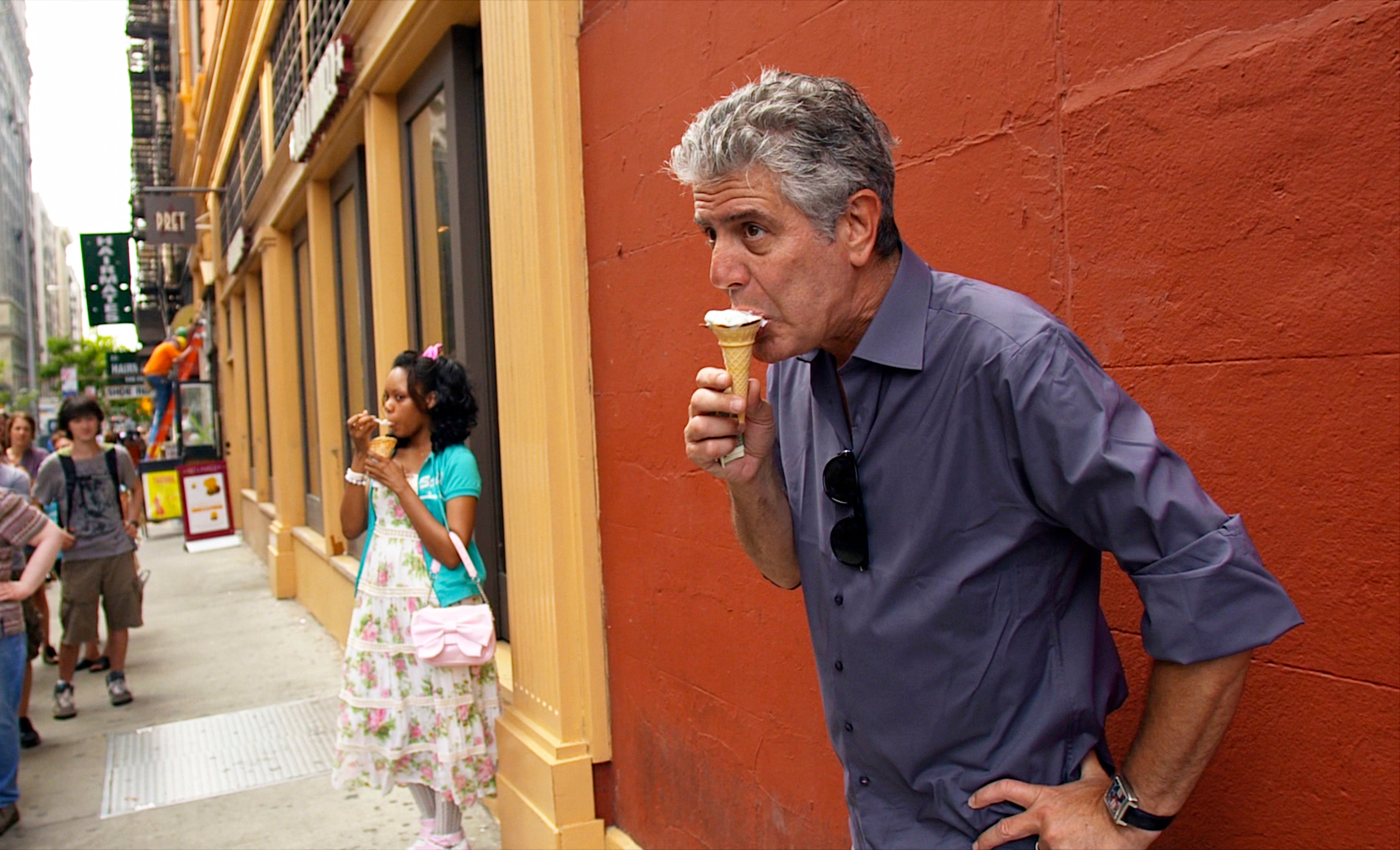Anthony Bourdain doc 'an act of therapy' for an acute loss
Filmmaker Morgan Neville was determined to approach his Anthony Bourdain documentary through a prism other than the TV personality's death

When the filmmaker Morgan Neville began making a documentary on Anthony Bourdain the late chef and globe-trotting television host, one of the first things he did was comb through every song Bourdain had ever referenced. He came up with a playlist 18½ hours long and called it “Tony.”
Neville, the director of the Fred Rogers portrait “Won’t You Be My Neighbor?” and the Oscar-winning “20 Feet From Stardom,” was determined to approach Bourdain through a prism other than his death. Music was only a small part of it. But it was a start in making “Roadrunner: A Film About Anthony Bourdain” a celebration of Bourdain’s life. Not a forensic inquiry. Not a eulogy.
This was the fall of 2019, when Neville began. Bourdain’s death, in June 2018 by suicide, was still fresh. For many, it still is. “Roadrunner” premiered over the weekend at the Tribeca Festival, days after the three-year anniversary of Bourdain’s death. Just the debut of the film’s trailer prompted an outpouring of emotion — and millions of views within days, a rarity for a documentary — showing how many are still grieving Bourdain’s loss.
“I’ve come to think of the film as an act of therapy for the public,” Neville said in an interview. “I think for people who only know Tony as someone they were a fan of, like me, there was just this giant question mark hanging over his life because of his death. How the (expletive) could Tony Bourdain kill himself? That is still something people are grappling with.”
“Roadrunner,” which Focus Features will release in theaters July 16, goes about answering that question by filling in a fuller portrait of Bourdain. It gives new insight and context to Bourdain’s end by following the arc of his life — or, more specially, his second life. After years of working as a chef in New York Bourdain’s book “Kitchen Confidential” catapulted him to fame in middle age. In “Parts Unknown” and other far-flung travel shows that feasted on not just indigenous foods but a wide spectrum of culture, history and shared passions, Bourdain became an unlikely, and unusually authentic, television icon.
When Bourdain was found dead at 61 in his hotel room in Strasbourg, France, it was shocking because few seemed so full of hunger for life, or a greater appreciator of all that’s worth savoring. Neville spent the first months on the film not even dealing with Bourdain’s final chapter. When he did finally turn to it, he found no easy answers.
“The way I came to think of it is: Tony was an ultimate searcher and a seeker,” says Neville. “But if you are really always seeking and always curious, then you can get lost. He had this tattoo that he got late in life that said in Greek ‘I am certain of nothing.’ That sounds very Zen, but it’s also a little sad. If you’re truly certain of nothing and always looking for something, it means you’re leaving everything behind at every moment. I think for Tony, that rootless ultimately disconnected him from the things he should be certain about, like the love of people around him.”
The interviews for the film Neville considers the most difficult he's ever done. Many of those close to Bourdain were talking about his death for the first time.
“There was just this sense of group trauma that people are still dealing with," said Neville. “I don’t think anyone was looking forward to talking to me, frankly. It’s not like: ‘Oh, great!’ They knew it was going to be hard. Several people said it would be the last time they talk about it. I think there was this sense of: Let me say it once, for the record.”
That includes interviews with Bourdain's ex-wife, Ottavia Busia, chef friends Éric Ripert and David Chang, TV producers Lydia Tenaglia and Christopher Collins, and musicians John Lurie and Josh Homme. Homme, of Queens of the Stone Age, recorded a song for the film. There's footage pulled from “Parts Unknown,” revealing outtakes and Bourdain's own Instagram stories, which gave a small window into his turbulent final year. Neville didn't speak with a few key figures from that time, including longtime cinematographer Zach Zamboni, whom Bourdain fired in that dark period, and the Italian filmmaker Asia Argento whose tumultuous two-year relationship with Bourdain has for many loomed over his death.
Neville was more intent on focusing on the choices that Bourdain, himself, made, and the journey that led to his tragic end. To him, a full understanding can only be elusive. But he suspects Bourdain felt increasingly rootless after his split from Busia, that when any semblance of domestic life receded he grew increasingly disconnected from who he was, and what he meant to people — including his daughter. That he was maybe too long on the road.
“When I first sat down with the people close to him — his manager and his production partners — I kind of went on my rant about why he was someone who was a champion for culture and what connects us,” the director says. “And they said, ‘Yeah, that’s true. But he was also an immature 15-year-old boy.’ I thought, OK, that’s interesting. That became the kind of crux of the making of the film — reconciling someone who was both so insightful, but also so blind to some things.”
___
Follow AP Film Writer Jake Coyle on Twitter at: http://twitter.com/jakecoyleAP
Bookmark popover
Removed from bookmarks